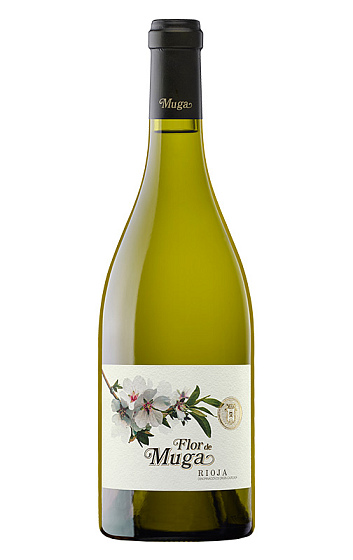Flor de Muga Blanco 2018
Descripción
La versión blanca de Flor de Muga es la última y notable incorporación al porfolio de la histórica casa riojana. Estamos ante un coupage de Viura, Garnacha y Maturana blancas con un perfil borgoñón que sigue la tendencia de los blancos tradicionales actualizados. Elegancia, complejidad, redondez y refinamiento en una sola botella.
Ficha técnica
Cata
Viñedo y elaboración
Opinión de los críticos
Like they did with the Rosado a few years ago, there is now a top-of-the-range white. The 2018 Flor de Muga Blanco was produced with a blend of 40% Viura from red limestone and clay soils, 30% Garnacha Blanca from classical clay and limestone and 30% Maturana Blanca planted on sandy soils. They selected the free run must after a short maceration in the press and fermented it in small oak vats (there's no stainless steel at Muga) at low temperature. The wine was then kept with fine lees in concrete eggs for three months, during which time they expected it to fix aromas and provide some volume, and then it was aged in lightly toasted new French oak barrels for six months. The wine has been kept in bottle for 18 months. This is a notable addition to Muga's portfolio, a white that follows the trend for updated traditional whites that go beyond the fresh and fruity wines that were the norm in the last few years, going back to the whites from yesteryear. The wine has a Burgundian profile, less oxidative than the old traditional whites, with smoky and spicy notes, white pepper and flowers, and the varieties feel very integrated and complementary. The palate is medium-bodied, with a velvety texture and very good natural acidity and pH, making it vibrant, transparent and focused. This will be a Reserva and released in February/March 2021. They produced 11,400 bottles in this first vintage. The price has not yet been decided.
A subtle and complex white with sliced-peach, apple and vanilla-pod aromas and flavors. It’s medium-bodied with a solid core of fruit and hints of toasted oak. It’s tight, very subtle and reserved. Blend of macabeo, white maturana and white garnacha. Release in 2021. Try after 2021.
2018 marks the maiden release of this ambitious white from the Mugas, produced as a welljudged cuvée of Viura with 30% each of Garnacha Blanca and Malvasía. Focused, chiselled and complex, this needs a little more time in barrel to absorb its new wood, but has notes of citrus, baking spices and a hint of stone fruit sweetness. 2022-28.









Añadas: 2020 2019 2018
Buen blanco. Se podrá guardar???
Esta añada no tiene valoraciones todavía. Pincha en las otras añadas para ver sus valoraciones.